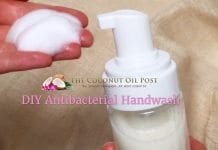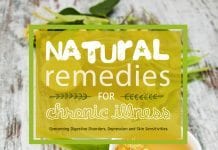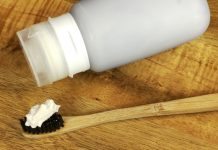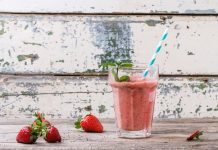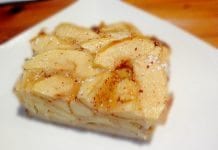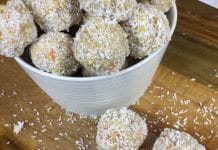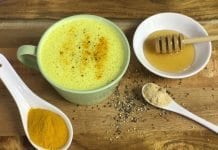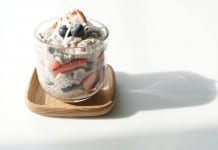I get so excited when I discover a way of meeting needs that does not require me to buy shares in some industrial or commercially produced product. That’s how I stumbled on Gelatin – a natural anti ageing supplement.
As I fast approach 50 and determine to age gracefully (meaning I won’t stress and worry about what takes place as I age) I also want to have some solutions, preferably natural, up my sleeve that will sustain me and hopefully give me a sense that I’m taking care of myself.
It was one of these moments of being graceful when I looked a bit too hard in the mirror and discovered there were a few too many lines that didn’t fall into the category of expression lines. I decided I needed to gracefully do something about this.
For the next couple of weeks, I found myself tripping down memory lane as I explored the options of commercial anti ageing creams. I had no conviction at all to purchase a “chemically based and most likely toxic to the bloodstream beauty product” but felt I needed to explore this option thoroughly until I satisfied myself that it would be a ludicrous idea to start buying some skin care range (organic, natural et al) that promised everything, delivered nothing and came with an expensive price tag.
As I had discovered coconut oil nearly 4 years ago and have seen the countless benefits of using it as part of my skin care routine I knew that this was a key ingredient that I wouldn’t just ditch.
But I was in a dilemma. If my coconut oil was not somehow miraculously transforming me from the outside then what will? Which made me think – if anti ageing is not necessarily about what happens on the outside but rather what’s happening on the inside then what else can I include in my diet that would hopefully do the trick.
At this point, I went researching. And found this great article. Ray Peat, the author of this article, has a Ph.D. in Biology from the University of Oregon, with specialization in physiology. It’s good to know that someone who has a sound education in physiology is not afraid to speak out his opinion about energy and structure being interdependent. Read the full article here
In the meantime, I’ll give you my take on it.
Gelatin, Stress, Longevity
Like we have stuffed up our fatty acid intake by insisting as a society to eat less and less saturated fats, so too, we have stuffed up the balance of amino acids by accepting the “boneless, skinless chicken breast” notion that we are somehow being healthy. It’s okay if you’ve been there done that. I certainly did for a short time but my natural instinct to “stick my teeth into a rich gelatinous lamb cutlet or a chicken leg with all it’s dark rich meat and juicy skin” overcame me too many times that it convinced me that those instincts are there for a reason.
We are getting way too many Omega 6’s and not enough Omega 3’s. Mainly due to the increase of vegetable oils and not enough animal fats. ie: Too many unsaturated fats, not enough saturated.
Traditional diets were rich in gelatin from bone broths to head cheese to foods like pig’s feet and ox tails. Today the modern diet consists of pretty cuts of meat that sit delicately on a plate with trimmings. Our ancestor’s diet was usually served in a wooden or tin vessel sometimes piled high with bones, broth, heads and feet! Our diets may have changed but our bodies haven’t. Our bodies crave the gelatinous meats of years gone by. Unfortunately, when we are starved of something for so long eventually we will forget to ask for it.
It’s the gelatin from the bony, cartilaginous bits of the animal that gives us the much-needed collagen. Lean muscle meats contain less than 50% collagen in comparison with their bony neighbours.
When only the muscle meats are eaten, the amino acid balance entering our blood stream is the same as that produced by extreme stress, when cortisol excess causes our muscles to be broken down to provide energy and material for repair. The formation of serotonin is increased by the excess tryptophan in muscle, and serotonin stimulates the formation of more cortisol, while the tryptophan itself, along with the excess muscle-derived cysteine, suppresses the thyroid function.
Both tryptophan and cysteine inhibit thyroid function and mitochondrial energy production, and have other effects that decrease the ability to withstand stress. Tryptophan is the precursor to serotonin, which causes inflammation, immunodepression, and generally the same changes seen in aging. Histidine is another amino acid precursor to a mediator of inflammation, histamine; would the restriction of histidine in the diet have a longevity promoting effect, too?
It happens that gelatin is a protein which contains no tryptophan, and only small amounts of cysteine, methionine, and histidine. Using gelatin as a major dietary protein is an easy way to restrict the amino acids that are associated with many of the problems of ageing.
Gelatin, with its glycine and proline, is said to :
- provide energy
- reduce susceptibility to stress
- fight tumors
- soothe the intestinal tract
- improve thyroid function
- stimulate natural sleep
- improve skin quality and combat to some degree the visual signs of ageing.
If for whatever reason you gag at the sight or mention of oxtail soup, chicken feet, fish heads et al then a supplement of gelatin can be taken. You can buy gelatin flakes here through my resource page.
or you can simply try the gelatin that you buy from the supermarket. Take a teaspoon up to 3 times a day and increase the dose after a week or so if you wish.
I started taking it at the beginning of this week and so far have found great benefits in energy levels, improved sleep and bowel movements.
While I would love to incorporate the bone sucking and marrow licking meals onto my dinner table, my family, on the other hand, would really struggle. My latest attempt of beef spare ribs (not the American rack, sorry) the other short and chunky, layered version, was a dismal fail with my kids and hubby. So the majority of the ribs ended up in a casserole where they haven’t gone to waste at all. If you want to try your hand at bone broths or stocks check out this article.
How about you? Ever tried gelatin supplements?



